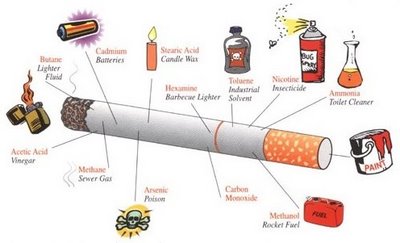How to quit
Smokers often say, "Don't tell me why to quit, tell me how." There is no one right way to quit, but there are some key elements in quitting with success. These 4 factors are key:
- Making the decision to quit
- Setting a quit date and choosing a quit plan
- Dealing with withdrawal
- Staying quit (maintenance)
Making the decision to quit
The decision to quit smoking is one that only you can make. Others may want you to quit, but the real commitment must come from you.
Think about why you want to quit.
- Are you worried that you could get a smoking-related disease?
- Do you really believe that the benefits of quitting outweigh the benefits of continuing to smoke?
- Do you know someone who has had health problems because of their smoking?
- Are you ready to make a serious try at quitting?
If you are thinking about quitting, setting a date and deciding on a plan will move you to the next step.
Your Quit Day
On your Quit Day, follow these suggestions:
- Do not smoke. This means none at all -- not even one puff!
- Keep active -- try walking, exercising, or doing other activities or hobbies.
- Drink lots of water and juices.
- Begin using nicotine replacement if that is your choice.
- Attend stop-smoking class or follow your self-help plan.
- Avoid situations where the urge to smoke is strong.
- Reduce or avoid alcohol.
- Think about changing your routine. Use a different route to go to work, drink tea
- instead of coffee. Eat breakfast in a different place or eat different foods.
Read on to find out more about the kinds of thoughts and temptations that come up
when you try to quit, and ideas for ways to deal with or avoid them.
when you try to quit, and ideas for ways to deal with or avoid them.
Avoid temptation
Stay away from people and places where you are tempted to smoke. Later on you
will be able to handle these with more confidence.
will be able to handle these with more confidence.
Change your habits
Switch to juices or water instead of alcohol or coffee. Take a different route to
work. Take a brisk walk instead of a coffee break.
work. Take a brisk walk instead of a coffee break.
Alternatives: Use substitutes you can put in your mouth such as sugarless gum
or hard candy, raw vegetables such as carrot sticks, or sunflower seeds. Some
people chew on a coffee stirrer or a straw.
or hard candy, raw vegetables such as carrot sticks, or sunflower seeds. Some
people chew on a coffee stirrer or a straw.
Activities: Do something to reduce your stress. Exercise or do hobbies that keep
your hands busy, such as needlework or woodworking, which can help distract you
from the urge to smoke. Take a hot bath, exercise, or read a book.
your hands busy, such as needlework or woodworking, which can help distract you
from the urge to smoke. Take a hot bath, exercise, or read a book.
Deep breathing: When you were smoking, you breathed deeply as you inhaled
the smoke. When the urge strikes now, breathe deeply and picture your lungs
filling with fresh, clean air. Remind yourself of your reasons for quitting and the
benefits you'll gain as an ex-smoker.
the smoke. When the urge strikes now, breathe deeply and picture your lungs
filling with fresh, clean air. Remind yourself of your reasons for quitting and the
benefits you'll gain as an ex-smoker.
Delay: If you feel that you are about to light up, delay. Tell yourself you must wait
at least 10 minutes. Often this simple trick will allow you to move beyond the strong
urge to smoke.

at least 10 minutes. Often this simple trick will allow you to move beyond the strong
urge to smoke.





contain of cigarettes


No comments:
Post a Comment